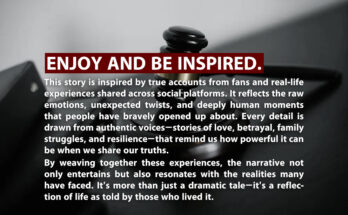It was a regular Monday morning until I got a frantic call from my daughter—my grandson had collapsed and was being rushed to the hospital. Without hesitation, I emailed my manager explaining the emergency and that I wouldn’t be coming in. I didn’t hear back, but my focus was on family. I spent the day comforting my daughter and waiting for updates. Thankfully, my grandson stabilized. I returned to work the next day, exhausted but relieved—only to find HR waiting for me with a formal complaint. My manager had reported me for job abandonment.
I was stunned. I’d never missed work without notice, and I had documented everything. HR reviewed my email and acknowledged the situation, but said protocol required an investigation. I felt betrayed. My manager hadn’t even asked how my grandson was doing. Instead, she treated me like a liability. I was placed on probation and told to attend a compliance seminar. It felt like punishment for being a parent and a grandparent. I started questioning whether this job valued people or just productivity.
Colleagues were sympathetic but cautious. Some whispered support, others avoided me. I realized how fragile workplace loyalty could be. I’d given years to this company, worked overtime, mentored new hires—and now, one emergency had put my career on the line. I began updating my resume, quietly exploring companies that valued empathy. I didn’t want to work somewhere that saw compassion as a weakness.
A month later, I received an offer from a company known for its family-first culture. I accepted. On my last day, I packed my desk with quiet satisfaction. My manager barely acknowledged my departure. But I didn’t need her approval. I had chosen integrity over fear. My grandson was healthy, my daughter was grateful, and I was finally moving toward a workplace that aligned with my values.
Now, I work remotely with flexible hours and a team that checks in on each other—not just for deadlines, but for life. I’ve shared my story with new colleagues, and many have faced similar moments. We’ve built a culture of trust, where emergencies aren’t punished—they’re understood. I’m thriving, not just professionally, but personally.
This experience taught me that standing up for your family might cost you a job—but it can also lead you to a better one. I refused to be shamed for choosing love over labor. And in the end, that choice gave me both.


